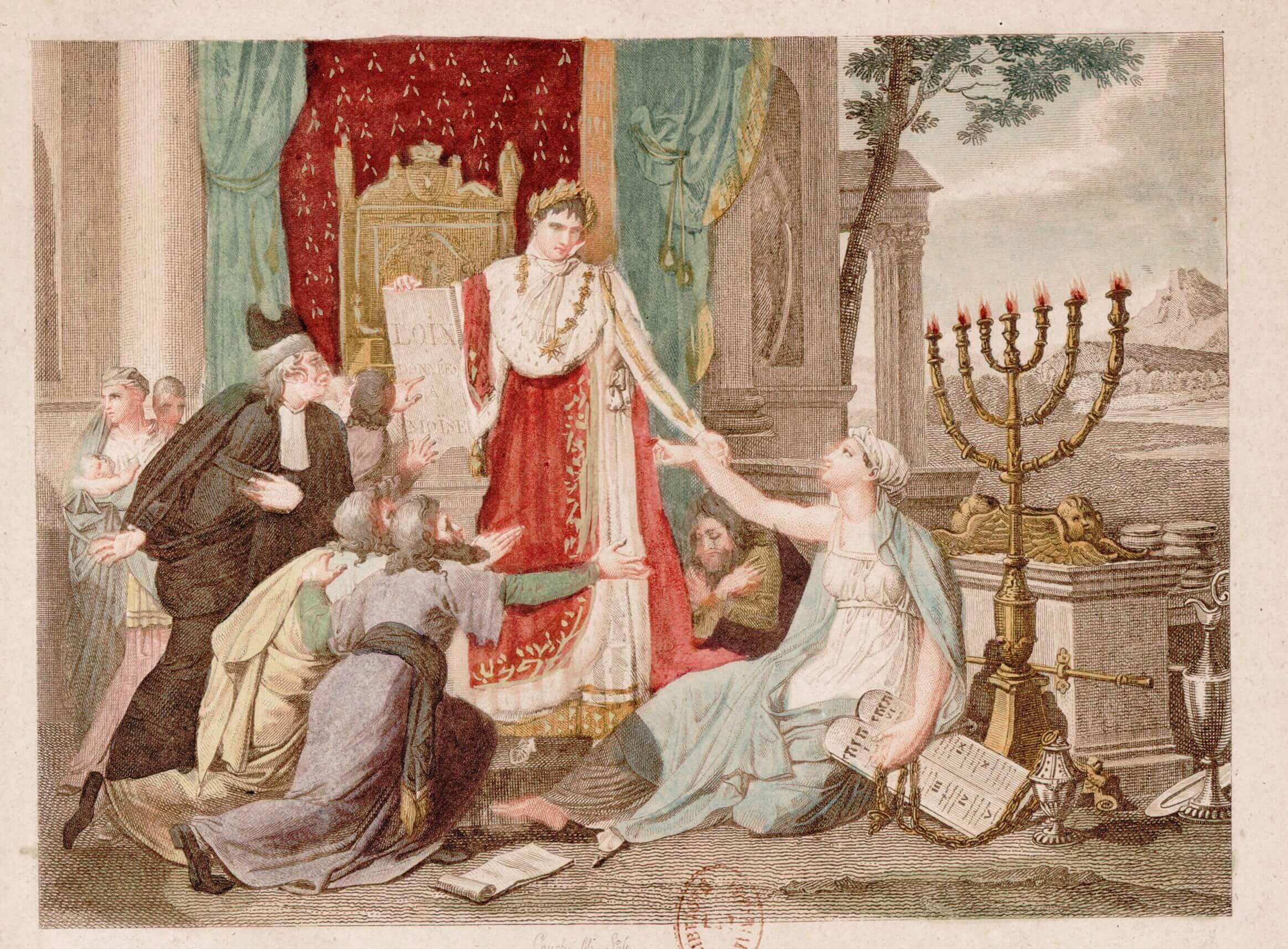The emancipation of Jews across Europe is often presented as a positive turning point in our history. Emancipation into European society was, however, no gift to the Jewish people.
During the Enlightenment period, individuality and reason ruled supreme in philosophical forums. It was an opportunity for the Jews, who had for centuries been systematically excluded from most trades and professions. But it wasn’t actual freedom that motivated European nations to emancipate their Jewish populations. Rather, it was the opportunity to emancipate Jews from their Jewishness.
In the name of rationalism, Jews could be freed from their primitive ideals and what set them apart from the rest of humanity. Their unique name structure erased – in the name of progress. Their distinct languages discouraged and banned in certain settings – for a homogeneous European society.
In other words, to gentilic Europe, even a wretched Jew can be fixed. Even the Jew could become more man. In the clash between Hebrew and Western civilizations, this was the ultimate strategy for victory.
European society had by and large accepted that the Jew was deformed. The emancipation debates were not challenging this notion, but rather whether or not correction could be attained. Could the Jew be reformed in the image of Europe.
This prelude to the white savior complex should not be dismissed as anachronistic. The European intellectual elite felt that by including Jews in capitalist enterprise, they could cure the Jew of his illness – Jewishness.
By reforming what they saw as primitive in our ancient culture, European society fashioned an enslaved Jew and called it “freedom.” A Jew whose name does not resemble his parents, whose tongue is foreign, whose values reflect those of Paul more than those of the Maccabees or Zealots. This was a Jew that Christian mercy could tolerate.
Clermont-Tonnerre enshrined this very enslavement by famously declaring in 1789, that “We must refuse everything to the Jews as a nation and accord everything to Jews as individuals.“
Those Jews who advocated for such an emancipation were the thought leaders of the Haskala who sought to reform their ancient culture, which they viewed as archaic and primitive. Moses Mendelssohn is the most well known example. His colleague, Wilhelm Von Dohm said that the Jew’s Jewishness was a defect, albeit a curable defect, to their humanity. The emancipation of the Jew had to be conditional to the Jew’s reformation.
This “favor” of “granting” Jews rights was to be returned.
Both Israel Eldad and Hannah Arendt recognized the paradoxes of emancipation. The emancipation of Jews in European society had led to the Jewish problem. As Eldad put it, the emancipation led to Auschwitz.
Dominant powers emancipating the Jews is not a phenomenon unique to the 18th century.
In Tractate Brakhot, the Talmud suggests that because of Israel’s sins, they did not merit a miraculous return to Eretz Yisrael (Brakhot 4a). While they returned to Judea, it was largely due to permission from King Cyrus, which indebted Israel to the Persian Empire. Emancipation not liberation.
The United Nations partition plan was an emancipation. United States President Donald Trump’s moving of the US embassy to Jerusalem was an emancipation. The day that the world commemorates the Shoah is the day that American soldiers emancipated the camps. Our days of liberation are those that are minimized by those seeking emancipation.
Meaningful change must come by way of struggle and revolution. We are not handed anything free of charge. With everything the emancipation purported to grant us, we lost a central piece of our identity.
In the footsteps of those who carved a path before us, our patriarchs and matriarchs, Moshe and David, the Sicarii and the Leḥi (Fighters for the Freedom of Israel), and countless other movements, let us seek liberation beyond emancipation.






Good analysis